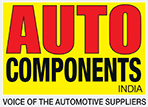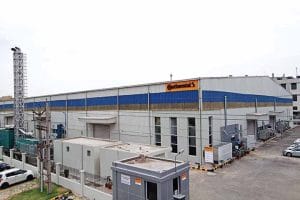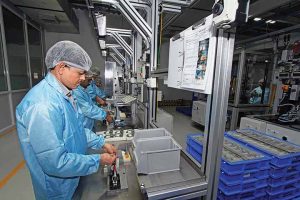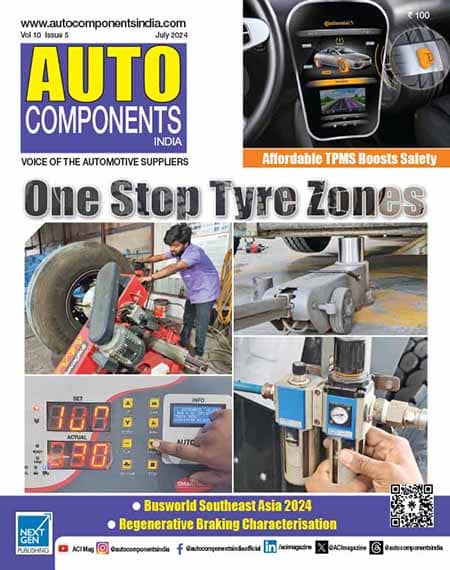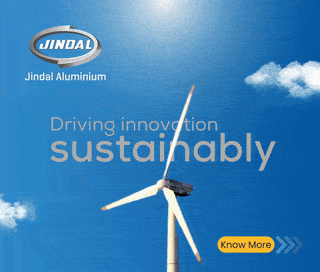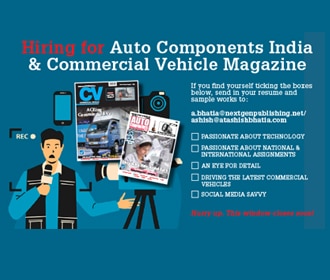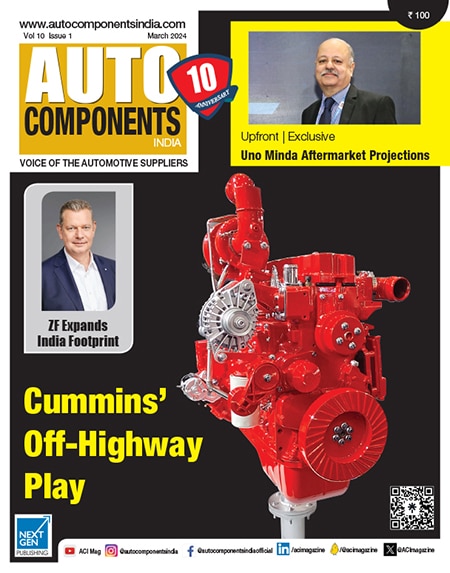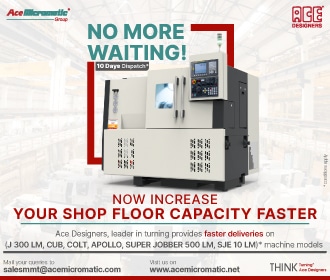Continental Automotive India is in sync with the disruptive shift to localise ride-assist technology. Sumesh Soman toured the Manesar plant to see the on-ground preparations, in line.
Localised technology setups have been the ask for a while now. It’s the pace of execution at Original Equipment Manufacturers (OEMs) that’s attained newer heights. Government interventions like the Production Link Incentive (PLI) scheme under the ‘Make in India’ program umbrella have made it all the more lucrative. The resultant incentives extended to Advanced Automotive Technology (AAT) has had companies file for eligibility with 20 Champion OEMs granted approval, and the tier supplier approvals expected to follow suit. While the approvals come only now, at Continental Automotive India (Continental) the pro-active work on this road map has begun to fructify as evident from our visit to the company’s Manesar plant, in Haryana.
Any reduction in Costs of Goods and Services (COGS) is a win-win for stakeholders as per Krishan Kohli, Head of Vehicle Dynamics (VED) and Hydraulic Brake Systems (HBS) at the company. “For the brakes business, I think there is a large amount of localisation that has already been done. In the case of hydraulic brakes, it is northwards of 70 per cent, and for electronic brakes, it is to the tune of 50 per cent,” he revealed. “We are right now working to increase the child parts for callipers and drums and aim to increase the per centage further aimed at boosting the competitiveness and sustainability in the market for the company,” averred Kohli. Continental, caters to a majority of tier1 OEMs in delivering parts and products, for both two- and four-wheelers, he informed. He further added, “The company stays committed to the market in terms of making investment and having a strong growth vision for the two-wheeler and four-wheeler segments alike.

Degree of localisation
Localisation is at the core of Continental’s India strategy. In an end-to-end value creation attempt, from R&D to Production, and Sales and Marketing, it was way back in 2016, that Continental set up assembly lines in Gurugram to assemble Antilock Brake Systems (ABS) and Electronic Stability Control (ESC) systems for two-wheelers and four-wheeler (passenger cars). In 2018, the technology company set up production for ABS and ESC Electronic Control Units (ECU) at its Bengaluru plant. In the subsequent year, the company achieved a production milestone of one million ABS and ESC ECUs at the plant. In 2020, Continental reached a milestone of 50 million Wheel Speed Sensors (WSS) at its Manesar plant as a testimony to the growing localisation per product in the overall mix. ll of these, as per Kohli, are a direct result of constant innovations aimed at producing technologies driven by local market requirements backed by a capable R&D setup.
Continental’s ‘MiniMAB’ product (one-channel ABS) is developed for smaller motorcycles and scooters as a testimony of the company’s focus on localisation too. The system prevents the front wheel from locking up, thus helping to prevent crashes or any instability in the vehicle. This is also effective in combination with a mechanical drum brake on the rear wheel. MK100MAB product (two-Channel ABS) enhances safety by preventing both front and rear wheels from locking up on vehicles that have disc brakes on both the front and rear wheels. MK100 MAB product (two-Channel ABS) enhances safety by preventing both front and rear wheels from locking up on vehicles that have disc brakes on both the front and rear wheels. MK100 MIB product (two-channel ABS with Integral Brake Function) provides higher safety and comfort features like Motorcycle Hold & Go (MHG), Adaptive Cruise Control (ACC) and Emergency Brake Assist (EBA). The company currently employs more than 192,000 people in over 58 countries.
Shopfloor sojourn
With over a decade of presence in the Indian market, Continental operates across 14 locations with seven plants, a large tech centre in Bengaluru. Its workforce includes an estimated 8,000 people that form the backbone of its vision to meet the objective of tech localisation. The plant is fed by a warehouse that can hold up to 2500 pellets. Interestingly, the single-channel ABS line is controlled by women and impresses with its output of over 800,000 units annually. The shopfloor is digitised to the extent of being paperless with critical metric being relayed on handheld tabs and common screens built on a sustainable and highly efficient
On interacting with the Plant Manager, Continental Automotive Brake Systems Ltd., Anudeep Garg, it was learnt that the assembly line rely on an elimination protocol. As per the protocol, a defective part won’t make it to the next bay as the entire system is wired to segregate faulty parts and eliminate their participation further in the process. Garg, drew attention to the shopfloor also being temperature sensitive wherein each personnel is cleansed before entering. A machine is tasked with neutralising any static charge that one carries on self. “This, in turn, helps the shopfloor, produce efficiently, helping to avoid any untoward incidents,” he pointed.
Active and passive safety
The Advanced Driver Assistance Systems (ADAS) feature is boasted quite highly by global OEMs (in cars and commercial vehicles). The two-wheeler counterparts are not far behind, asserted Kohli. Advanced Rider Assistance Systems (ARAS) here found an important mention. The Manesar plant is learnt to play a crucial role in the Continental set-up. “The company believes in ‘Vision Zero’ and is working towards it. It essentially means zero accidents, zero injuries and zero fatalities,” expressed Kohli. Citing the progress made on active safety systems like the Anti-Lock Braking System (ABS) and Combined Braking System (CBS), and passive inclusions like ride modes and other sensor developed safety nets, Kohli drew attention to the rider community, graduating to bigger bikes and with it creating a pull for advanced rider safety features. “A performance-oriented class of riders will demand better safety features and soon we can expect these in the market,” he opined.
Continental is working with multiple OEMs, both at home and abroad, collaborating to test out these safety features. Kohli expects the ARAS functions to be mandated in the two-wheeler market over the next couple of years. The features like hill hold assist, rear lift protection, optimised curve braking will make it to markets soon, he mentioned. Of the firm belief that OEMs are responding to the pull for safety features with Continental products expected to enter the market ahead of mandates requiring OEMs to do so, one can expect OEMs to soon wanting to integrate these into their vehicle. This is organic, quipped Kohli. On the price sensitivity associated with the Indian market, Kohli explained, “People look at two-wheelers as the cheapest mode of transport here and advanced safety features are seldom a factor when it comes to a common two-wheeler buyer.” Admitting to the segment witnessing a substantial hike due to higher input costs, Kohli expects the rollout of advanced technology to be a little delayed than anticipated pre-Covid19. When the time is ripe, Continental, concluded Kohli, will be ready to bear the fruits of localisation and align with the future foresight as envisioned. ACI
